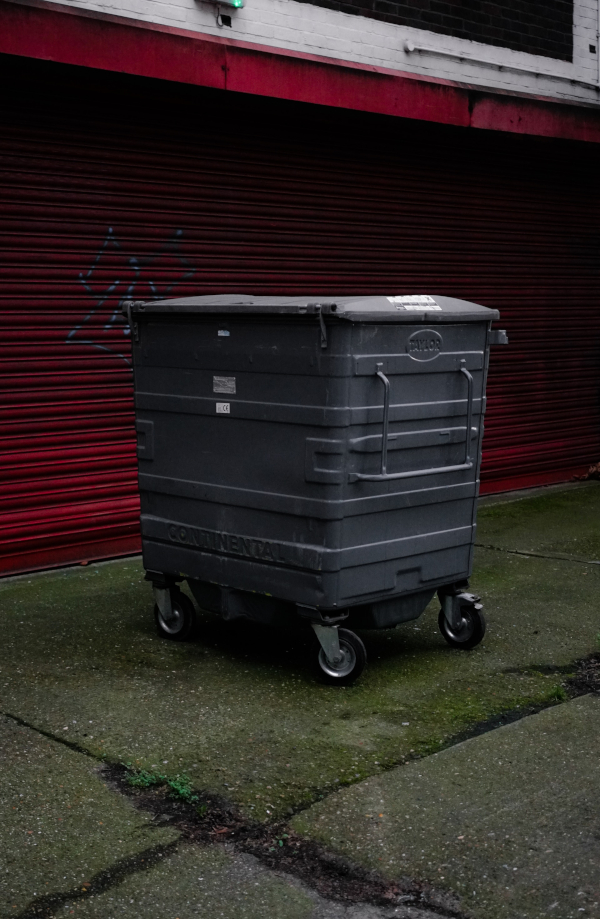Refuse legislation changes are coming: here's what your business needs to know about Simpler Recycling
THURSDAY 16TH JANUARY 2025
The aim of the “Simpler Recycling” scheme is to segregate waste more definitively to make recycling and end-disposal easier. The rationale behind the new legislation is threefold. Firstly, the government wants to standardise recycling practices across England to eliminate regional variations and what many see as postcode lottery in terms of waste collection services.
Secondly, it wants to simplify bin collection systems and processes to reduce the number of waste streams to four categories only: in some areas there are currently up to seven categories for businesses to contend with!
Thirdly, the new legislation is designed to improve sustainability, and align with circular economy goals. A key government aim is to move more quickly towards a greener, less wasteful (and therefore more profitable) economy by keeping our resources in use for longer, reducing waste and protecting our natural environment.
What are the new recycling regulations from DEFRA? Simpler Recycling explained
In essence, businesses with more than 10 employees will have to segregate their waste into four separate bins:
- Food waste
- Garden waste (where applicable)
- Paper/card
- Dry recyclable materials such as plastics, metal and glass
The Simpler Recycling in England policy update outlines these legislative changes for recycling in England. Its new default requirements mandate households and workplaces to use these four specific categories for waste collection to achieve a universal standard and consistency in materials collected.
The new policies also address the collection of dry recyclable materials to reduce potential contamination. That’s a key reason why paper and card are to be collected separately from all other dry materials to maintain and maximise their recycling potential.

A circular economy for greater business efficiency
As part of the government’s Circular Economy strategy, these latest measures are seeking to maximise recycling rates and close the gap from where we are now in terms of waste to a more influential culture of reuse for economic gain.
Recycling rates in England currently languish at 44%, so there is enormous scope for improvement and greater business efficiency which impacts positively on bottom line costs.
So, a key goal is to radically improve that percentage metric, as well as significantly reducing the amount of waste sent to landfills and incineration.
It’s important to note that micro-firms (defined as those with fewer than 10 full-time equivalent staff) are temporarily exempt from the new requirements until March 2027. This extended timeline for compliance with the legislation recognises their limited capacity for immediate adaptation.
How local authorities will help implement the new legislation
Local authorities are to have their arrangements in place for these new collections for core recyclable waste streams by 31 March 2025.
They also have the wherewithal to organise co-collections of food and garden waste under specific conditions to ensure efficient processing. It is thought that this will not affect the capability to recycle or compost these materials as they can be processed through in-vessel composting when mixed.
Funding support and flexibility for local councils to adapt the new legislation to specific regional needs is also proposed to aid implementation.
In terms of residual waste collection, it is anticipated that volumes should reduce, nut councils will be monitoring their collection frequencies to minimise any adverse effects on waste management for businesses. There will also be ongoing consultation and stakeholder engagement to ensure effective rollout and compliance.
How Everflow can help your business meet the new Simpler Recycling regulations
Preparing for the new waste segregation regulations may at first seem a daunting task for your business. What receptacles will you need and how often will collections take place?
Everflow’s business waste management services are sustainability focused and designed to save you time and money.
We can advise you every step of the way, helping you put effective strategies in place for waste collection, and reviewing these on an ongoing basis to refine them.
It’s our aim to help you adhere to the new legislation whilst supporting your business and environmental goals together.
Get in touch with Everflow today
Looking for the best waste management services for your business? You’re in the right place. Everflow are dedicated to serve environmentally friendly utilities solutions to businesses across the UK. Get in touch with our team today to find out how we can support your organisation.